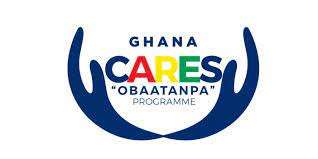The Deputy Finance Minister, Dr. John Kumah, has revealed Ghana CARES is a covid-19 program designed purposely for the alleviation and revitalization of the economy.
He indicated that, it is crucial to adopt a strategic plan that will introduce vitality into the economy given the breakdown that the pandemic has caused Ghana and all other countries to experience.
“So basically, it is now you need to stabilize a covid economy and then you revitalize it and you do that by doing strategic investments. And so, basically when you say Ghana CARES it’s all about how we are reviving the economy after all the difficulties we have been through, since last year.”
Dr. John Kumah
As Ghana still recovers from the pandemic, there have been rising needs to steadily restructure the economy into a robust and more resistant state.
The Deputy Minister for Finance mentioned that the monetary value of the Ghana CARES program is hundred billion cedis. He declared that, the source of funding for the project is going to be shared between the government and the private sector in a ratio of 30 is to 70, respectively.

Despite the challenges pertaining to revenue generation as the Midyear Budget revealed, Dr. Kumah indicated that the government of Ghana will raise its funding domestically through expansion of its revenue base. Similarly, the private sector funds will be raised through government’s development partners, Public Private Partnership (PPP) arrangements and especially Ghana Investment Infrastructure Program (GIIF).
Dr. John Kumah therefore, stated that young people are going to be beneficiaries of this innovative and strategic Ghana CARES project since it seeks to create more jobs. He further declared that the project will expand the economy by revitalizing the financial actors such as the bank to create liquidity in the economy.
Speaking on ‘Ghana Beyond Aid’, the Minister for Finance defined it as a vision to mitigate the high dependence on external development partners for support.
With reference to the national budget, Dr. Kumah mentioned clearly that in recent times, Ghana has continuously decreased the percentage of support it seeks in the form of grants or donation from external development partners. Consequently, the government of Ghana does about 90 per cent of budget financing on its own resources. Even if the government has to dwell on borrowing, it will be doing so on its own financial resources.
“So, when we say ‘Ghana Beyond Aid’, it doesn’t mean that you won’t go out there to seek for financing in the form of borrowing or any activity, but you are saying that you are not taking it as a grant or without their help you cannot run your budget. And every country in the world needs the help of the other and so at a point, you may need support in one form or the other and we welcome that. We have grant component of the budget but that is very minimal.”
Dr. John Kumah.
According to the Deputy Minister for Finance, government is still moving with ‘Ghana Beyond Aid’ agenda.
On the issue of government’s borrowing, Dr. John Kumah, was of the view that borrowed money is still government’s money except that you are giving extra time to repay in a future time.
He emphasized that, Ghana has adhered to its repayment schedules and has never defaulted in any instance.
Meanwhile, in Dr. John Kumah’s opinion, the amount of loan you apply for, should not necessarily be the case, instead the reason for which you apply should be highly considered.
Also, he added that, the economy has experienced high level of cautious management and as such, indicators of high debts have been avoided. He mentioned that, there has been growth specifically in the first quarter, inflation has maintained single digits, exchange rates have been stable as well and as import reserves risen.
Read Also: Education Minister poised to resolve strike issue- Bright Wireko-Brobbey




















